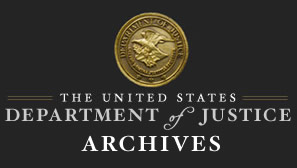


District Court Decisions
Venkataram v. Off. of Info. Pol'y, No. 09-6520, 2012 WL 3283485 (D.N.J. Aug. 9, 2012) (Simandle, J.). Holding: Denying plaintiff's motion for contempt; and ordering defendant EOUSA to provide a Vaughn Index for any withheld information on the date 45 days after plaintiff has tendered full pre-payment of the estimated search fee. The court denies plaintiff's motion to hold defendant in civil contempt based on its assessment of search fees and its proposed timeline regarding the search for responsive records. The court finds that "Plaintiff has not, apparently, requested a waiver of fees on the grounds provided in [the Department of Justice regulations]" and "[t]herefore, the Court sees no reason why Plaintiff should not be required to comply with agency regulations and pre-pay the estimated search fees [which exceed $250] before the Department of Justice undertakes a time-consuming search." As to plaintiff's allegations of delay regarding the timing of the search, the court notes that "Plaintiff points to no statute or regulation, and the Court finds none in its own research, that would suggest that Defendant's proposed schedule is unusually or unacceptably slow." The court orders defendant to submit a Vaughn Index within 45 days after plaintiff's pre-payment of the assessed search fee.
ACLU v. DOD, No. 04 Civ. 4151, 2011 U.S. Dist. LEXIS 115171 (S.D.N.Y. Oct. 5, 2011) (Hellerstein,J.). Holding: Denying plaintiffs' motion to hold the CIA in civil contempt. The court denies plaintiffs' motion for civil contempt, concluding that such a finding "at this point would serve no beneficial purpose." The court finds that "[t]he CIA's failure to identify or produce the videotapes in response to plaintiffs' FOIA request and [the court's] repeated orders, and the destruction of the videotapes, has been remedied." The court further notes that although the requested videotapes have been destroyed, "the CIA has remedied that failure by a massive production of . . . records [that] describe the contents of the videotapes, corresponding in time to their creation, and records that relate to the videotapes' destruction, in particular, the persons and reasons behind the destruction, corresponding in time to both the videotapes' creation and destruction." Moreover, the court observes that "[p]laintiffs have had a full and fair opportunity to litigate whether those records, or any of them, are exempt from disclosure under FOIA Exemption 1or 3 or must be produced" and further notes that its rulings on those points are currently on appeal. Additionally, the court finds that "[t]he public gains an additional benefit from the remedial relief put in place by the CIA – improved protocols for the retention of records potentially relevant to an investigation or a judicial, congressional, or administrative proceeding." And, "contrary to plaintiff's view, [the court opines that] the CIA's new protocols would have a remedial and deterrent effect should a CIA official think to destroy documents." However, the court notes that the parties agree that it "ha[s] the inherent authority to impose an award of attorneys' fees and costs, as a matter of fairness and equity, without finding the CIA in contempt," and finds that "[t]he parties should endeavor to settle between them the amounts that fairly are due."

